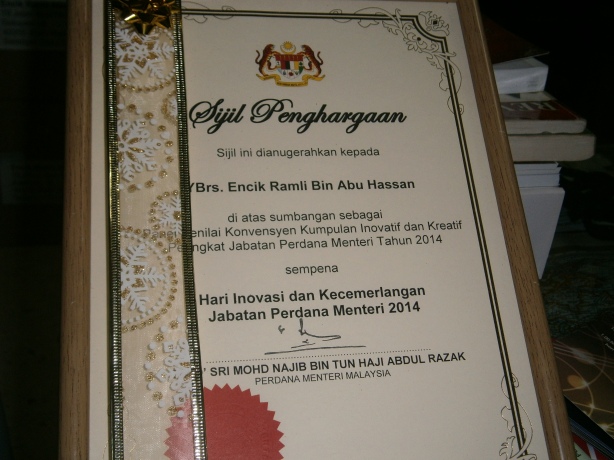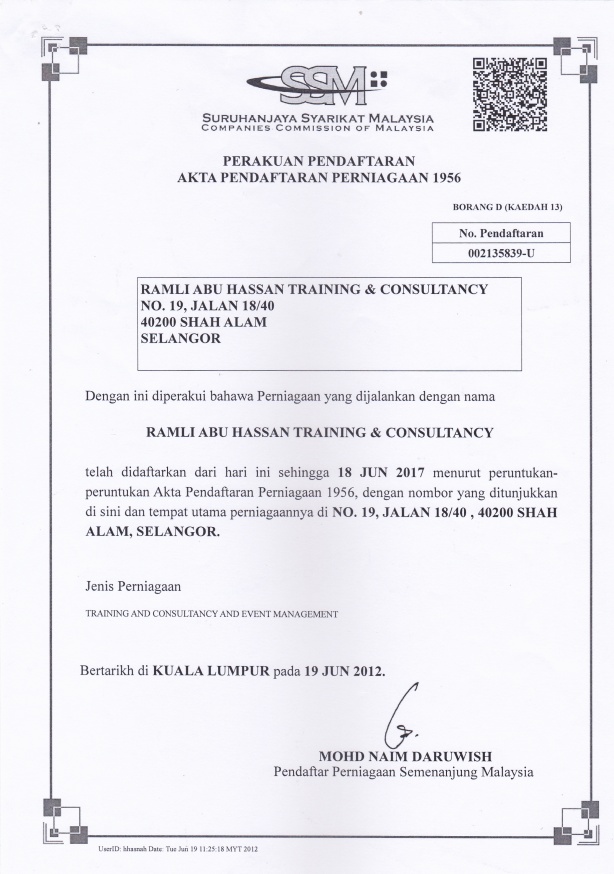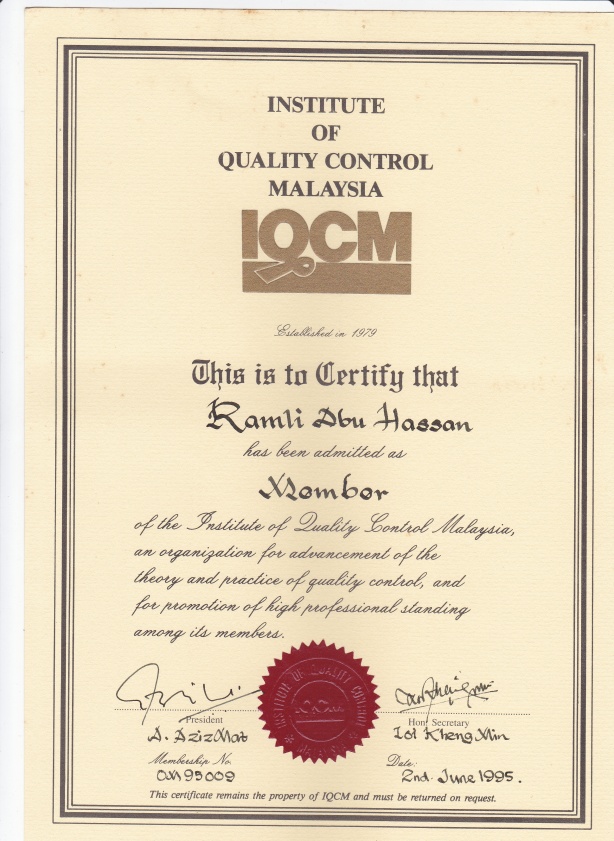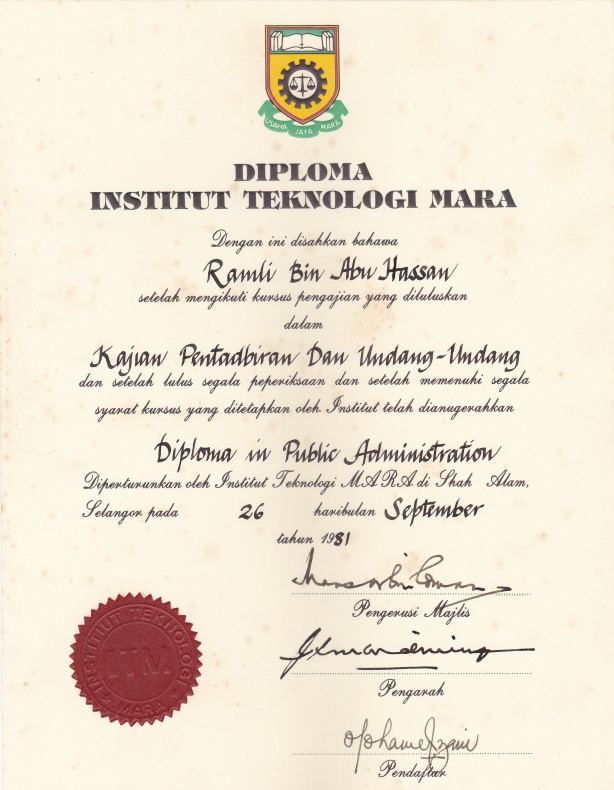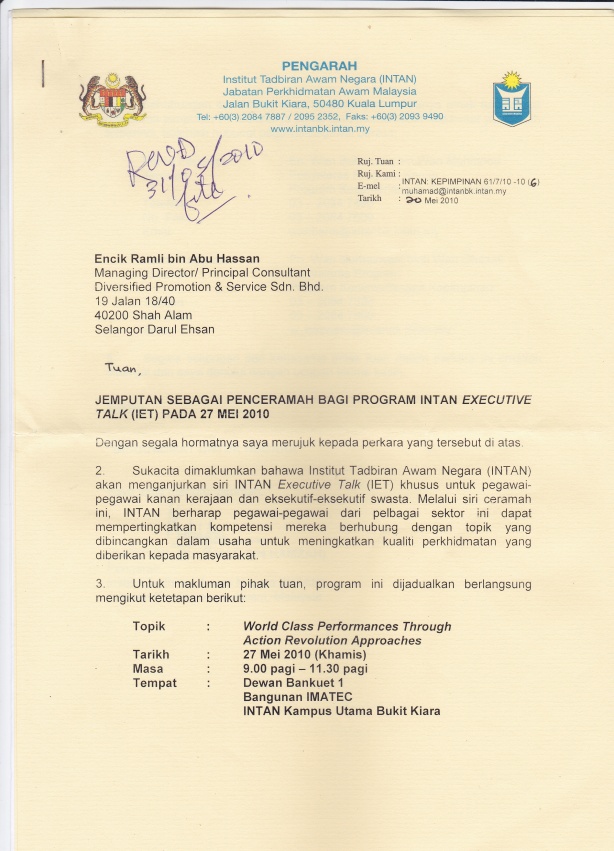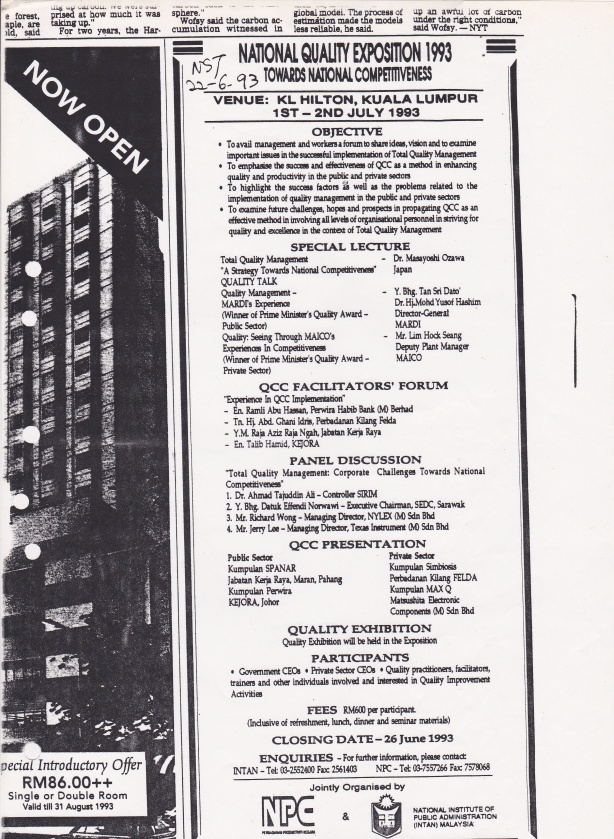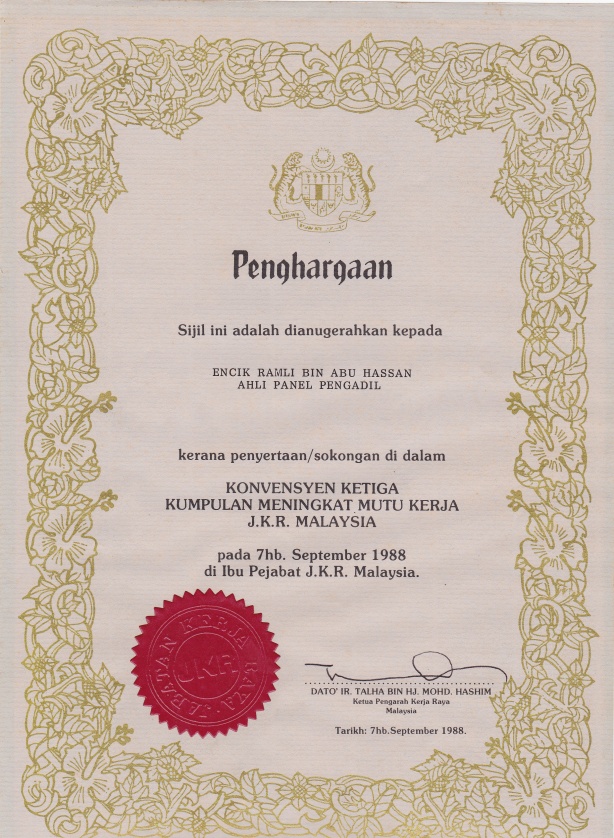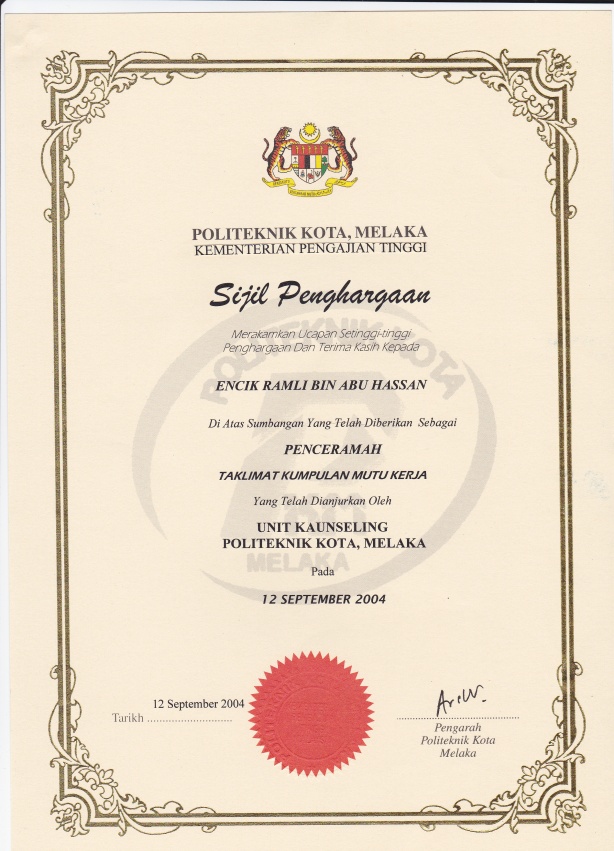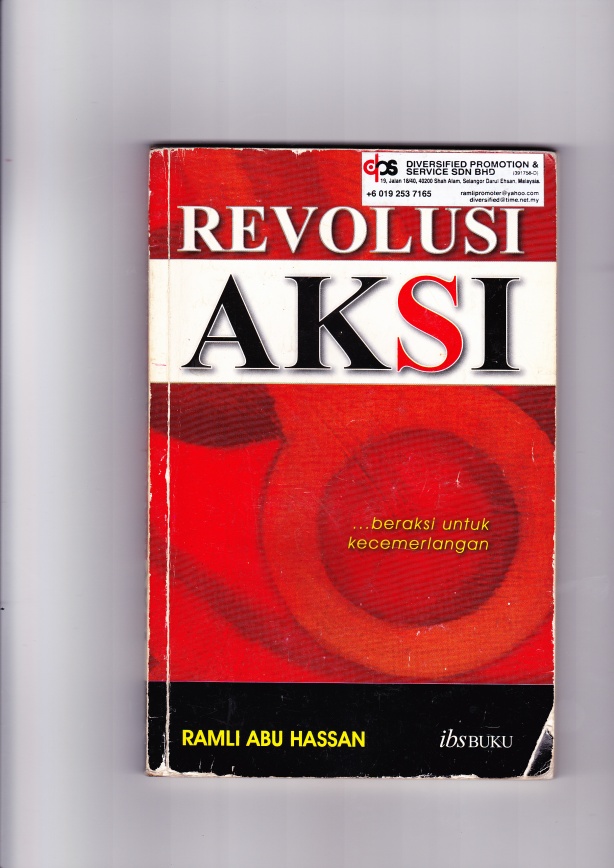Tajuk:Sebut Harga & Kertas Cadangan Bimbingan Kumpulan Inovatif dan Kreatif (KIK) dari RAHTC
Pengenalan:
Sejak 1983 lagi,pihak Kerajaan telah mula memperkenalkan aktiviti kumpulan iaitu kumpulan meningkat mutu kerja atau KMK dimana setiap Kementerian,Agensi atau Jabatan kerajaan digalakkan untuk menubuhkan KMK dan kemudian KIK mereka berpandukan kepada PKPA Bil 7 Tahun 1991 dan yang terbaru PANDUAN MENGENAI KUMPULAN INOVATIF DAN KREATIF(KIK)KERAJAAN MALAYSIA,JABATAN PERDANA MENTERI MALAYSIA,
1 NOVEMBER 2009
Dengan permulaan yang baik dan bersistem maka bilangan KMK telah mula bertambah dan Konvensyen KMK dari peringkat Kebangsaan,Negeri,Kementerian dan Jabatan telah mula bertambah dan setiap KMK yang terpilih harus membuat persembahan di peringkat tersebut dan jika berjaya di pilih berpandukan kepada sistem penilaian KMK mereka akan maju ketahap kebangsaan.
Pada tahun 2009,Kerajaan telah mula menukar nama KMK kepada KIK (Kumpulan Inovatif dan Kreatif) hingga sekarang.
KIK adalah kumpulan kecil diantara 4 hingga 10 ahli bekerja di tempat yang sama dimana KIK akan menyelasaikan masalah atau membuat penambahbaikkan kerja dari aspek kualiti,produktiviti,kos,keselamatan,moral dam juga penghantaran.Setiap KIK akan mengapplikasikan alat2 QC yang asas dan baru serta alatalat yang sediaada dan perlu dalam projek KIK mereka.
Dengan berpandukan Kitaran Kualiti Deming atau PDCA,KIK akan membuat dan menghabiskan projek mereka berpandukan kepada jadual dan aktiviti dalam Kitaran PDCA tersebut.
Semua projek KIK yang selesai atau Berjaya di laksanakan perlu dipersembahkan pada pihak Pengurusan agar dapat di nilai dan meneruskan persembahan mereka pada peringkat Kementerian,Negeri dan Kebangsaan.KIK yang Berjaya akan diberi anugerah dan peluang untuk membuat persembahan pada peringkat antarabangsa seperti ICQCC dan ASQ Team Achievement Awards dan lain lain lagi.
Objektif Program
Perkara yang utama yang ingin dicapai adalah untuk memperkenalkan Falsafah Sebenar QCC@KIK dan pentingnya KIK serta cara cara yang terbaik (best practices) dalam menjalankan projek KIK tersebut.Applikasi Putaran Rajah PDCA serta Alat QC yang asas(Q7) dan baru (M7) juga akan diajar oleh Encik Ramli Abu Hassan (Fasilitator Kursus) kepada semua peserta peserta.
Teknik KIK yang terkini akan juga di perkenalkan kepada peserta peserta kursus agar persembahan di peringkat kementerian,negeri dan kebangsaan akan di kenalpasti dan apa kah persediaan dan cara cara yang terbaik untuk berjaya dan maju sampai ketahap tertinggi seperti menjadi KIK peringkat Final KIK Negeri dan Kebangsaan.Inshallah.
Selain dari pada yang tersebut diatas kita juga akan memastikan yang Budaya Kualiti melalui projek projek KIK akan kekal dan KIK akan terus dijalankan dari projek ke projek setiap masa.
Kandungan Program
Definasi Sebenar Falsafah QCC@KIK .
Faedah Ketara dan Tidak Ketaranya KIK
Peranan Fasilitator,Ketua Kumpulan dan Ahli Ahli KIK
Formula Putaran PDCA
Apa kah projek KIK yang terbaik dilaksanakan?
Bagaimana mengenal pasti KIK anda memuaskan semua kriteria kriteria persembahan projek KIK?
Bersediakah KIK anda dengan sesi Q&A semasa persembahan nanti?
Apakah yang boleh di aksikan lagi ?
Alat Alat & Teknik yang boleh di applikasikan dalam Projek KIK anda.Q7 dan M7 tools.(yang terpilih sahaja)
Dan lain lain perkara…
Jangka Masa:
3 hari dari 8:00 pagi hingga 5:00 petang.
Peserta:
Bilangan peserta yang terbaik dijangka dalam 30 orang .
Faedah faedah menyertai program ini
Setiap peserta akan berjaya mendapat faedah faedah tersebut dibawah ini:
• Memahami akan pentingnya KEWUJUDAN KIK di Organisasi Anda.
• Memahami akan Formula Putaran Deming atau PDCA
• Memahami dan mengapplikasikan alat alat Q7 dan M7
• Mengenal pasti akan segala aspek projek KIK anda.
• Mendapat hasil dan membuat penambahbaikan ditempat kerja anda.Hasil dan faedah ketara dan tidak ketara merangkumi aspek Q,C,D,S.M & E
• Membuat persediaan yang terbaik untuk setiap konvensyen KIK samada peringkat Kementerian,Negeri atau Kebangsaan.
• Mengekalkan aktiviti KIK setiap masa di tempat kerja anda.
• Berjaya membina Budaya Kualiti & KIK
Ketua Fasilitator
Encik Ramli Abu Hassan juga menjadi Penal Pakar Rujuk KMK@KIK untuk INTAN sebegitu lama sudah.
Encik Ramli telah bergiat dalam Dunia QCC/ICC/KMK/KIK/MQT sejak tahun 1976 hingga sekarang.Pernah menjadi Pengerusi Jawatankuasa QCC di Matsushita Malaysia,Head of TQM Secretariat Affin Bank Berhad dan juga menjadi Panel Hakim untuk Konvensyen QCC/KMK/KIK di banyak syarikat swasta,agensi kerajaan dan peringkat negeri dan kebangsaan.
Pernah membentangkan kertas kerja di IQCCC 1996 di Kuala Lumpur dan menyertai delegasi QCC Malaysia di ICQCC di Tokyo,Bali dan Malaysia.
Ramli juga menjadi Pengasas Revolusi Aksi iaitu buku yang ditulisnya pada 2006.
Sila lihat biodata Encik Ramli seperti dalam lampiran.
Methodologi Program:
Kursus dikendalikan dalam Bahasa Malaysia dan Inggeris (jika perlu.)Ceramah,Kajian Kes,Bengkel dengan latihan secara individu dan kumpulan,tayangan video juga disediakan.Manual Latihan akan merujuk kepada buku buku QCC@ICC serta KMK@KIK dan Revolusi Aksi dan lain lain .
Sebutharga (quotation):
Yuran professional adalah RM3,500 sehari dan untuk 3 hari adalah : RM 10,500.00 (tidak termasuk penginapan,makan minum dan LCD projector&PA sistem dan kos pengangkutan (jika luar dari kawasan Lembah Klang)Satu set manual latihan akan sediakan oleh Encik Ramli untuk semua peserta peserta kursus.Jika berminat dengan cadangan tersebut harap memberitahu pihak RAHTC secara resmi dengan Surat Tawaran (Offer Letter) kepada:
Encik Ramli Abu Hassan,Principal Consultant
Ramli Abu Hassan Training & Consultancy (RAHTC)
19 Jalan 18/40
40200 Shah Alam
Selangor Darul Ehsan
HP:0192537165
Tel:03-55450975
Emel: ramlipromoter@yahoo.com
Bank : Alliance Bank Seri Muda Shah Alam,Selangor D.E.
Bank Acc No: 121270010044038
Acc Name: Ramli Abu Hassan Training & Consultancy
Kandungan Kursus (Program):
Hari Pertama:
8:00 pagi hingga 05:00 petang
8.00 – 9.30 Pengenalan Fasilitator dan Peserta Kursus
Latar Belakang dan Objektif Kursus
Sejarah dan falsafah QCC@KIK di Jepun dan Malaysia
KIK Body Slogan ? Siapa yang hebat? (Latihan/Exercise)
9.30 – 10.30 KIK dengan strukturnya
Peranan Fasilitator,Ketua Kumpulan dan Ahli Ahli
10.30 – 10.50 Minum Pagi
10.50 – 12.00 Mengenal apa itu Putaran Deming atau PDCA dan komponen komponen nya
Latihan/Exercise – Putaran Deming
12.00 – 1.00 Mengenal Pasti Projek KIK anda?
Latihan/Exercise : Apakah tema,tajuk dan perancangan projek KIK anda selepas Sesi Brainstorming Kumpulan Anda.
1.00 – 2.00 Makan Tengahhari
2.00 – 3.15 Memahami dan mempelajari Alat Alat QC serta Latihan/Exercise
-Carta Aliran
-Brainstorming
-Check Sheet
3.15 – 3.45 Minum Petang
3.45 – 5.00 Memahami dan mempelajari Alat Alat QC (sambungan)
-Rajah Pareto
-Graf & Carta Bar,Carta Pie
Sesi Soal Jawab bersama peserta kursus.
Tamat Sesi Hari Pertama
Hari Kedua
8:00 pagi hingga 05:00 petang
8.00-10.30 Memahami dan mempelajari Alat Alat QC (sambungan)
-Rajah Tulang Ikan
-Rajah Sebaran
10.30 -10.50 Minum Pagi
10.50 – 1.00 Memahami dan mempelajari Alat Alat QC Baru (M7)
-Rajah Affiniti
-Rajah Hubungkait
1.00 – 2.00 Makan Tengahhari
2.00 -3.15 Memahami dan mempelajari Alat Alat QC Baru (M7) (Sambungan)
-Rajah Pokok
-Rajah PDPC
-Rajah Arrow
3.15 – 3.45 Minum Petang
3.45 – 5.00 Memahami dan Mengenal Pasti Applikasi Alat Alat Q7 dan M7 dalam Projek KIK Anda
Sesi Soal Jawab bersama peserta kursus.
Tamat Sesi Hari Kedua
Hari Ketiga
8:00 pagi hingga 05:00 petang
8.00 – 10.30 Memahami Kriteria Penilaian KIK (terkini)
• Dokumentasi
• Persembahan
• Q&A
• Pamiran
10.30 – 10.50 Minum Pagi
10.50 – 1.00 Memahami Kriteria Penilaian KIK
(sambungan)
1.00 – 2.00 Makan Tengahhari
2.00- 3.15 Persediaan untuk Persembahan Projek KIK kepada Pihak Pengurusan (Dokumentasi & Persembahan)
3.15 – 3.45 Minum Petang
3.45 – 5.00 Rumusan dari Peserta Perserta (Action Plan)
Rumusan dari Encik Ramli (Fasilitator Kursus)
Ucapan Penutup (Pegawai Atasan Organisasi)
Sijil Penyertaan pada Peserta Peserta yang Berjaya.
Tamat Kursus.
Bersurai.
Disediakan oleh: Encik Ramli Abu Hassan
Prinsipal Konsultan
Ramli Abu Hassan Training & Consultancy
Shah Alam
Tarikh: 17hbNovember,2014
Testimoni Penglibatan Ramli Abu Hassan dalam Dunia QCC@KMK@KIK @ICC @MQT (as of Today)
